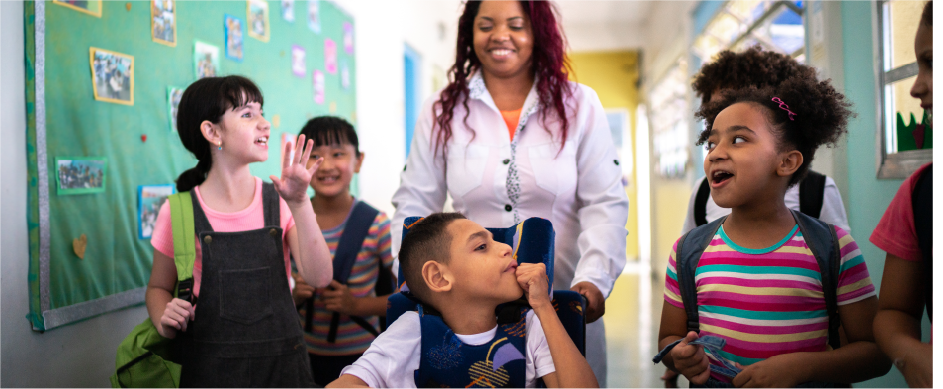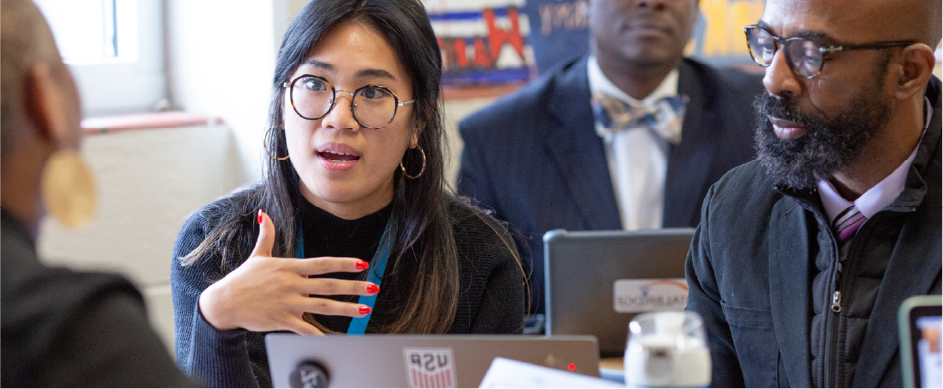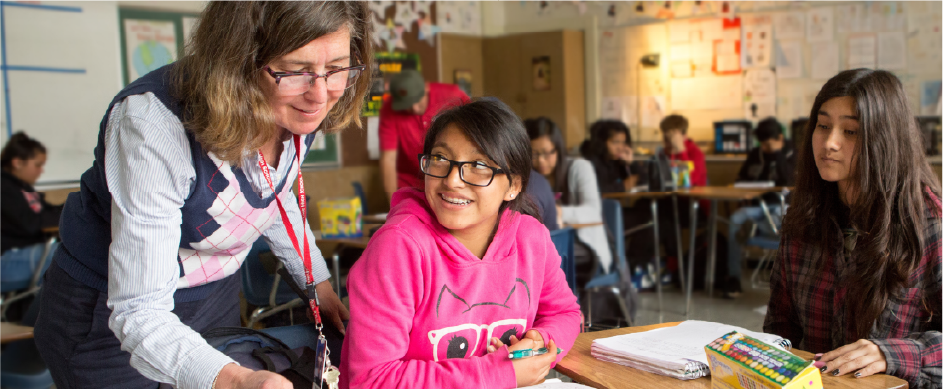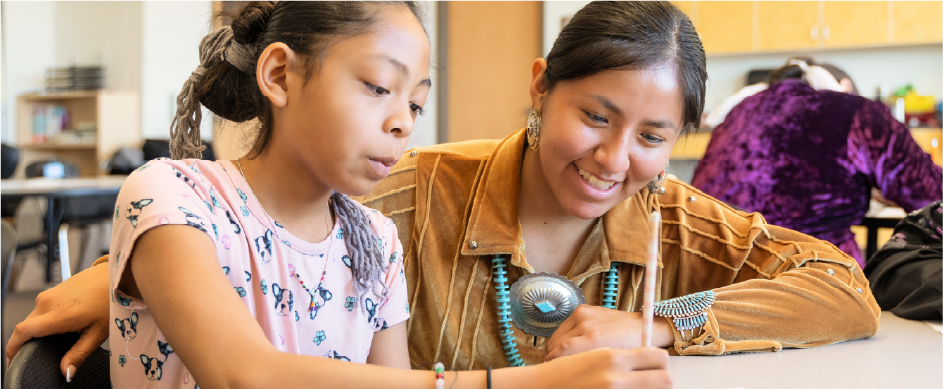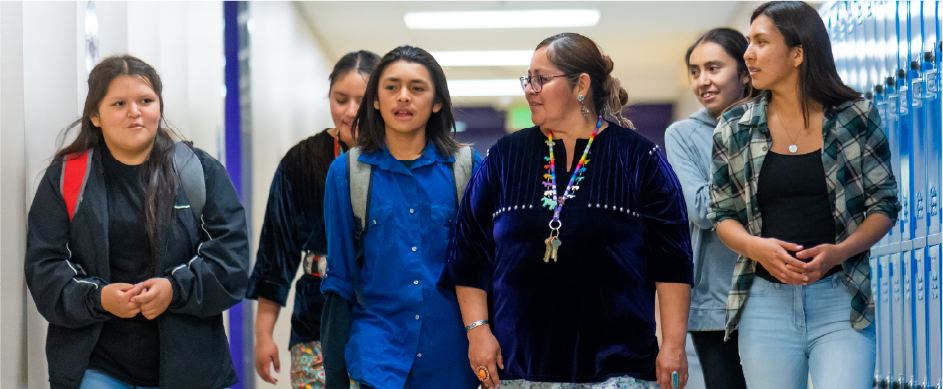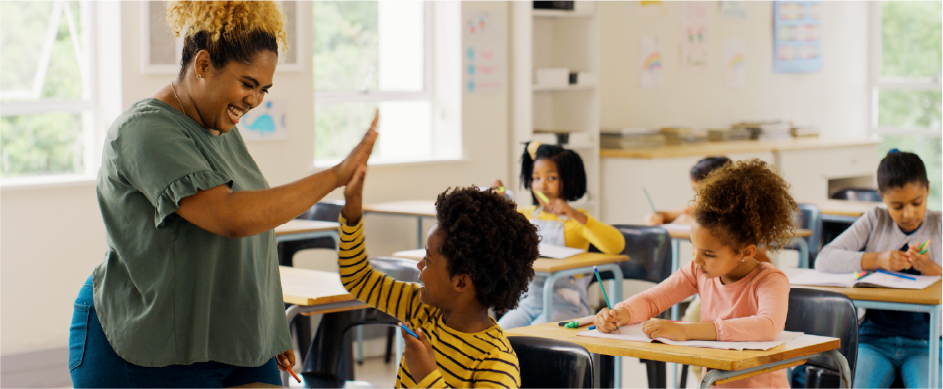Resources
Training and support provided by the Regional Teams will assist families and educational organizations in improving equity, access, opportunities, and outcomes for all students with disabilities

For Professionals
Special Education Process
Description: This package contains the materials needed to provide professional learning on creating a quality IEP. Participants will develop their understanding of the components of a quality IEP designed to provide students with disabilities access to the general education curriculum.
Download Training:Description: This presentation will guide professionals through the process of transitioning children from Early Intervention to the Committee on Preschool Special Education.
Download Training:Description: This package contains the materials needed to provide professional learning on incorporating NYS content standards into the IEP.
Download Training:Description: A training designed for CPSE/CSE chairpersons focused on promoting meaningful family engagement in the CPSE/CSE process and quality special education services for all students with disabilities. The training utilizes a best practices approach to the CPSE/CSE process and a chairperson’s role within that process that is consistent with State law and regulation.
Download Trainings:T100-Module_1_The_Foundations.pdf
T100-Module_5_Recommendation_IEP_Development.pdf
T100-Module_6-Implementing_and_Amending_the_IEP_508.pdf
T100-Module_7_Annual_Review_508.pdf
Description: This package contains the materials needed to provide a targeted skills group phase one (foundational learning) on the New York State Alternate Assessment (NYSAA).
Download Training:Description: The Preschool Special Education Process training is designed to gain a foundational understanding of the IEP Process including but not limited to the Committee on Preschool Special Education (CPSE), and the roles and responsibilities of all parties.
Download Training:Description: The Educational Benefit IEP Reflection: Strategies for Improving Education Programs and Decision Making at the Committee on Special Education (CSE) professional development training package is intended to build awareness that student growth should be reflected across multiple years of Individualized Education Programs (IEPs). Furthermore, it is intended to guide participants to the realization that throughout the IEP there should be indicators of how the student learns, what their needs are and the specialized instruction that their disability requires.
Download Training:Description: This training was developed to promote the understanding and appropriate use of test accommodations for students with disabilities. The training is intended to provide information related to the decision-making process and types of test accommodations, as well as the documentation of appropriate accommodations on the individualized education program (IEP).
Download Training:Description: A package containing the materials needed to provide a targeted skills group with foundational content/learning on the least restrictive environment (LRE). Currently two of the six modules are available.
Download Trainings:Description: Special Education Quality Assurance (SEQA) conducts the State Performance Plan (SPP) 13: Secondary Transition compliance review in the Fall of the school year a district is scheduled for monitoring of SPP Indicator 13 (in accordance with the six-year monitoring cycle). The purpose of this training is to review key concepts of this compliance review to ensure districts are developing individualized education programs (IEPs) for students aged 15 and over that meet SPP Indicator 13 compliance requirements. Districts are required to complete this training the school year prior to undergoing this review. This training is focused on meeting compliance for SPP Indicator 13.
Download Training:Description: This package contains the materials needed to provide a targeted skills group (TSG) Phase Two (Root Cause Analysis) on the New York State Alternate Assessment (NYSAA).
Download Training:Description: This training was developed to promote the recommendation and implementation of quality special education services for all students with disabilities. This training is intended to provide general education administrators an overview of special education and their role in supporting its implementation.
Download Training:T255-Special Education for General Education Administrators-508.pdf
Academics
Description: The purpose of this 2-day training is to provide participants with an overview of what progress monitoring for academics is and how to implement this practice with individual students. Content is applicable to work with all general education students within a tiered model of academic support (e.g., Multi-tiered System of Supports, Response to Intervention) and students receiving special education services.
Download Training:Description: The presentation explains embedding explicit vocabulary instruction into primarily Tier I instruction. Participants will be able to explain the importance of robust vocabulary instruction for students in the elementary grades and how explicit instruction can be applied to vocabulary instruction. Finally, participants will be able to describe key features of vocabulary instruction and identify ways to incorporate vocabulary instruction into different parts of the school day.
Download Training:Description: This is an introductory Professional Development Package on instructional matching. Participants will be able to identify and differentiate between skill-based, fluency-based, and performance-based interventions. They will learn when each of these approaches is appropriate, given the nature of the observed problem and how to titrate the intensity of intervention to the learner as a response to instruction.
Download Training:Description: The Overview of Specially Designed Instruction professional development training package is the first in a suite of trainings on the development and use of specially designed instruction (SDI) for students with disabilities.
Download Training:Description: This is an introductory PD on Universal Screening Overview. The purpose of this training is to provide participants with an overview of what universal screening is and how to adopt this practice in their schools.
Download Training:Description: The Next Steps with Specially Designed Instruction professional development training package is the second in a suite of trainings on the development and use of specially designed instruction (SDI) for students with disabilities. This advanced level training is intended to further develop participants’ knowledge of specially designed instruction and how SDI should be designed and developed based on individual student need to address their learning barriers.
Download Training:Description: The Specially Designed Instruction for Distance Learning professional development training package is part of a suite of trainings on the development and use of specially designed instruction (SDI) for students with disabilities. This training is intended to provide participants with guidance and recommendations for providing SDI when engaging students in distance learning through online, hybrid, and other remote instructional delivery formats. Topics in this training include: a brief review of SDI regulations, equity in distance learning, steps for ensuring student access, practice reviewing an Individualized Education Program (IEP) to determine how to deliver SDI remotely, important considerations for remote SDI delivery, instructional priorities and strategies, structuring the distance learning environment, and communication. This package is primarily designed to be delivered as a one-day training; however, the training may be delivered across multiple days based upon EO scheduling requirements.
Download Training:Description: This training is intended to assist educators in remediating COVID-19 pandemic-related learning loss; provide strategies for distinguishing pandemic-related learning loss from students at-risk for academic difficulties and/or learning disabilities; and introduce educators to the use of class-wide progress monitoring and intervention as tools for identifying students for intensified intervention services.
Download Training:A012_Academic_Screening_Pandemic_Related_Loss_Addendum_B2.pdf
Description: The Designing an Effective & Inclusive Virtual Lesson professional development training package is intended to provide participants with resources and support needed to develop effective lessons (aligned with principles of explicit instruction) that successfully incorporate online tools and resources while considering equity for all learners.
Download Training:Description: The Specially Designed Instruction for Administrators professional development training package is the fifth in a suite of trainings on the development and use of specially designed instruction (SDI) for students with disabilities. This training is intended to further develop administrator’s knowledge of SDI and how SDI should be designed and developed based on individual student need to address their learning barriers. Administrators will be able to define SDI, recognize how to differentiate SDI from general education, identify what SDI looks like in the classroom setting, and gain necessary skills for supervision of implementation of SDI.
Download Training:Description: The purpose of this training is to help participants gain a greater understanding of what the Science of Reading has determined to be the foundational skills that are needed to become a proficient reader. Participants will explore current instructional practices in reading and the impact it has on reading proficiency. The training will also provide context for the importance of effective reading instruction and the impact that it has on equity for all students.
Download Training:Description: The purpose of this training is to help participants gain a foundational understanding of co-teaching as a service delivery model and the six models used to implement it. In New York state the co-teaching model is most often associated with the special education service integrated co-teaching. This model will be covered as well as the use of the co-teaching model among other service providers (e.g. English as a New Language [ENL] teachers, speech language pathologists etc.). Variations for use of the models will also be discussed throughout the training.
Download Trainings:A018_Co-Teaching A ComprehensiveApproach_Module 1.pdf
Co-TeachingCompApproachMod2.pdf
Description: The purpose of this training is to help participants understand how to use consultant teacher services to support the participation of students with disabilities in the general education classroom and curriculum. Participants will examine the purpose and goals of including consultant teacher services in a student’s Individualized Education Program (IEP). The training will define consultant teacher services according to New York State regulations as well as offer insight into what effective consultant teacher services look like in the classroom.
Download Training:Description: This explicit instruction training package is intended to support participants’ knowledge of explicit instruction and teachers’ abilities to effectively implement explicit instruction. Explicit instruction is a high leverage practice that has proven to be effective for special education students. Research has shown higher achievement results for students with disabilities in both reading and math after receiving explicit instruction.
Download Training:Description: This package contains 3 modules: Introduction and Establishing the District Level Team; The School Leadership Team; and the Grade-Level Team. It is designed to facilitate the implementation of evidence-based literacy practices for all learners. The training is anchored to the Reading-Tiered Fidelity Inventory (v. 2.0; R-TFI), and instruction on its administration is threaded across the modules. The R-TFI and this training are closely aligned to a Multi-Tiered System of Support service delivery structure.
Download Trainings:Mod1_MTSSA.DistrictLevelTeam.pdf
Description: The purpose of this training is to help participants gain a greater understanding of the Science of Reading; specifically, what phonological awareness is and how crucial this skillset is to the foundation of reading success. Participants will explore what skills to teach when, and how to teach these skills for students to master phonological awareness. The training will also provide context for the importance of using assessments to improve the effectiveness of phonological instruction for students. To overcome equity barriers, educators need to focus on systemic, explicit instruction to teach the skills supported by the science of reading.
Download Training:Description: The purpose of this training is to help participants gain a greater understanding of the Science of Reading; specifically, what phonics and word recognition is and how crucial this skill set is to the foundation of reading success. Participants will explore what skills to teach when, and how to teach these skills for students to master phonics and word recognition. The training will also provide context for the importance of using assessments to improve the effectiveness of phonics instruction for students. To overcome equity barriers, educators need to focus on systemic, explicit instruction to teach the skills supported by the science of reading.
Download Training:Description: The SoR Fluency for Reading Success training dives deeper into one of the key instructional areas of reading: fluency. Participants will learn what reading fluency is, what the Science of Reading (SOR) can teach us about the critical elements of reading fluency, how it develops over time, and how best to teach this skill to support overall reading development. Additionally, information about how to use assessment to optimize student instruction in this area will be provided. The training will provide context for the importance of high-quality fluency instruction to issues of equity, legal responsibilities around providing instruction aligned with the SOR, and how to support students with diverse learning needs.
Download Training:Description: Understanding Intervention: Overview of Tiered Intervention in Schools is the first part of a package designed to support schools in (a) identifying how academic interventions are used in schools, (b) understanding the elements of high-quality intervention, and (c) matching interventions to student need. After ensuring a school’s tier 1 environment is sound, as this is where most students with disabilities receive their education, staff and teachers should be taught the “ingredients” of high-quality intervention and practice matching intervention to demonstrated student need. This is the first of two modules for this topic. The second, Understanding Intensive Intervention: Implementing Data-Based Individualization in Schools, is specific to intervention planning and intensification using a popular problem-solving model developed by the National Center for Intensive Intervention
Download Training:Understanding_Intervention_Overview_of_Tiered_Intervention_in_Schools_(Updated).pdf
Description: The purpose of this training is to help participants gain skills to develop measurable goals in the Individual Education Program (IEP). Participants will learn the regulations related to goal writing, how to develop observable language for the goal and how to determine the specific components that measure progress in the goal. The training will also focus on the importance of well written, data-based present levels of performance as the foundation of the goals.
Download Training:Description: The Assessment Essentials Part 1 training package is the first in a two-part series of trainings based on assessment and provides participants with foundational knowledge vital for academic assessment. Participants will learn why academic assessments are an important and necessary tool for educational success, the language of academic assessment, the types of information assessments provide, and how to pick the right assessment for their students. The second training in this series, Assessment Essentials Part 2: Curriculum-Based Measurement (CBM), is designed to provide educators with greater knowledge of CBM, its characteristics and utility, CBM administration approaches, and interpreting CBM results.
Download Training:Description: The Assessment Essentials Part 2: Curriculum-Based Measurement (CBM) training package is the second in a two-part series of trainings based on assessment and builds upon foundational assessment knowledge and skills learned in Assessment Essentials Part 1. This training focuses on one of the key assessment areas of reading and math skills: CBM. Participants will learn what CBM is, common skills CBM can evaluate, availability of CBM administration packages, the versatility of CBM, how to administer and score CBM, and how to interpret results.
Download Training:Assessment Essentials Part 2 - Curriculum Based Measurement (CBM).pdf
Description: The Comprehensive Literacy Curriculum Review & Selection Process: Evaluating Alignment with the Science of Reading (SoR) training was developed to provide participants with essential information necessary for preparing for and conducting a review of their district’s current literacy curriculum. A school’s core literacy curriculum serves as a critical foundation for all levels of reading instruction, including for those students receiving supplemental support, intervention, or special education services. It is equally important for the literacy curriculum to reflect on the evidence-based content and instructional methods found in reading science as well as be free of practices that scientific research has shown to be ineffective or detrimental to learning. Participants will examine the purpose of regularly evaluating their literacy curriculum, review the key elements of the SoR, and learn how to develop a curriculum review team. The training will also teach participants how to use the Reading League’s Curriculum Evaluation Guidelines (CEGs) and Reviewer Workbook to evaluate their current curriculum for instructional gaps that should be corrected to provide students with highly effective and evidence-based literacy instruction. Finally, the training will address how participants can plan to address instructional gaps through implementing necessary initiatives and practices.
Download Training:Behavior
Description: This 2-day or multiple module training package is designed for PreK-12th grade educators who would like more information on positive behavior support– classroom management strategies including: 1) arranging the physical environment, 2) defining, teaching, and acknowledging expectations and rules, 3) defining and teaching classroom procedures and routines, 4) active supervision, 5) behavior specific praise, 6) response strategies for inappropriate behavior, 7) class-wide group contingencies, 8) multiple opportunities to respond.
Download Trainings:Description: A four-part series on understanding the FBA, BIP, and PM process as it relates to the NYS Part 200 Regulations of the Commissioner of Education.
Download Trainings:Description: This training is focused on function-based thinking. Participants will be able to describe challenging behaviors, understand the behavior pathway and use it to determine the function of behaviors, and understand and engage with the function-based thinking process to prevent or extinguish unwanted behaviors.
Download Training:Description: This training describes the components of the Behavior Pathway, to guide the understanding of the function of behavior to promote desired behavior.
Download Training:Description: This professional learning package contains the content and materials that are designed to help teams develop the capacity for an effective and efficient continuum of tier 2 supports for youth. The goal of this professional development is for you to build the capacity of the educational organization in developing the tier 2 systems planning team, learning how to use universal data to target groups of students in need of tier 2 support and assessing the fidelity of interventions/supports provided.
Download Trainings:PBIS_Tier2_CICO_FacilitatorTraining.pdf
Description: The goal of this professional development learning package is for participants to develop the data, systems and practices needed to support students with social/emotional/behavioral needs that go beyond what Tier 1 or Check-In Check-Out (CICO) can support.
Download Trainings:B202_PBISTier2_TeamTraining-SAIG.pdf
Description: Participants will learn each of the components of the Competing Behavior Pathway in order to identify behavioral interventions to promote desired behavior.
Download Training:Description: Developed by the Center on the Social and Emotional Foundations for Early Learning (CSEFEL), Promoting Social and Emotional Competence is consistent with evidenced-based practices identified through a thorough review of the literature. The series of five modules (1, 2, 3a, 3b, 4) were developed to describe and address the social-emotional needs of young children. Within the context of creating environments in which children can be successful, the Pyramid Model is a Multi-tiered System of Supports (MTSS) framework that supports the implementation of the practices needed to promote young children’s social and emotional competence and efficiently address challenging behavior. This model focuses on developmentally appropriate practices used to intentionally promote positive behavior and prevent challenging behavior for all students.
Trainings:Description: A six-part targeted skills group that includes an introduction to equitable behavioral systems, using behavior data to inform interventions, creating common disciplinary language, creating a behavior flow chart, Tier 1 practices to support student behavior, and working with families around behavior.
Download Trainings:Module2_UsingDataforInterventions_B.pdf
Module3_CreatingCommonDisciplineLanguage_B2.pdf
Module4_CreatingBehavioralFlowchart_B.pdf
Description: This training package is designed for district/building level administrators to gain a better understanding of the process related to discipline for students with disabilities as per the Part 201 of the Commissioner's Regulations. This professional development supports the administrator’s understanding of the regulatory requirements and the administrative responsibilities, as they relate to discipline, and are aligned to state law to ensure district compliance.
Download Training:Description: This professional learning package contains the content designed to build the foundation of Tier 1 within a multi-tiered system of supports on behavior with an educational organization. The goal of this professional development is for educational organizations to build the capacity around developing the systems, practices and data components of the PBIS framework.
Download Trainings:B110_Day1__StaffOverviewTemplate_PBIST1.pdf
B110_Day1_SchoolLeadershipTeam_TFI.1.1_2.pdf
Day2_BehavioralExpectations_TFI.1.3.pdf
Day2_TeachingExpectations_T1TT TFI 1.4.pdf
Day2_Involvement_TFI.1.1_1.1.pdf
Day3_ProbBehaviorDefs_TFI.1.5_1.6_1.8.pdf
Description: This training is an introduction to the FBA/BIP process. Participants will develop their understanding of the components of a quality IEP designed to provide students with disabilities access to the general education curriculum.
Download Training:Description: This package supplements the four-part series, “Using the FBA and the BIP Process to Support Students Needing Intensive Interventions.” This professional learning opportunity provides a brief overview and describes the role of parents, families, guardians, and caregivers to support students throughout this process.
Download Training:Description: This professional development package is intended to be an additional training that can be used in conjunction with the Positive Behavioral Interventions and Supports (PBIS) Tier 1 Team Training. The goal of this professional development is to support an educational organization (EO) with family and community engagement within their Tier 1 PBIS. The training highlights the six-essential features of family-school collaboration and how to align them to the 15 features of the Tiered Fidelity Inventory (TFI).
Download Training:Description: This package describes the ways in which a public health crisis, school crisis and/or types of civic unrest may be significant sources of stress and/or trauma for the students whom we support. Additionally, it explains the biological, cognitive, emotional and behavioral effects of trauma on student development and the ways they in turn affect a student’s academic and behavioral functioning in the classroom. The content explains how to use the data, systems, and practices components of a multi-tiered system approach to behavior to provide differentiated evidence-based supports.
Download Training:Description: This two-day training package, designed for building level administrators and teachers, is intended to help participants understand that exclusionary practices have significant short and long-term negative effects on academic, social-emotional, health and wellness, and family outcomes of students and that there are alternative approaches to discipline that lead to improved student outcomes. Participants will ground themselves in a common understanding of suspension, removal, and discipline, as well as influences, impacts, policies and procedures that contribute to the on-going suspension crisis in schools today. Throughout these two days, participants will learn and explore effective research-based strategies for responding to student behavior and appropriate alternatives to suspension, which have significantly fewer negative impacts on student or family outcomes.
Download Trainings:Description: This package provides a foundational overview of Family Engagement, its importance, and the Six Essential Features of Family-School Collaboration. Additionally, it integrates many activities that Educational Organizations (EO) can use to assess and further develop their current Family Engagement systems and practices. All the activities in the training package should be completed as they have been developed to support the understanding of the content, to increase generalization of the skills learned, and to support participants’ beginning development of Family Engagement Systems.
Download Training:Description: This professional learning package contains the content and materials that are designed to help general and special education preschool teachers set up learning environments that are developmentally appropriate for preschool students with diverse needs and backgrounds.
Download Training:Description: Each Educational Organization (EO) involved in the Targeted Skills Group (TSG) will examine their internal policies, procedures, practices, and data patterns/trends regarding the use of restraint and timeout utilized on students in their care. At the conclusion of the TSG each EO will develop an action plan based upon their own self-identified areas of need.
Download Trainings:Description: Disclaimer: The Center on the Social and Emotional Foundations for Early Learning (CSEFEL) has developed extensive, user-friendly training manuals, fidelity instruments, videos, and print resources which are available directly from this website to help early care, health, and education providers implement this model. These materials were designed based on input gathered during focus groups with program administrators, TA providers, early educators, and family members about the types and content of training that would be most useful in addressing the social-emotional needs of young children. The content of the materials is consistent with evidence-based practices identified through a thorough review of the literature. Please note, the NYS OSE Educational Partnership does not endorse any one product or vendor. Includes the “Early Childhood Program-Wide PBIS Benchmarks of Quality” and “Early Childhood Program-Wide PBIS Benchmarks of Quality Culturally Responsiveness Companion.”
Download Training:Equity
Description: This package contains the materials needed to provide a targeted skills group (TSG) with foundational content/learning on Disproportionality.
Download Training:Slides_An Introduction to Disproportionality Targeted Skills Group-Day One.pdf
Description: This package contains several one-page documents that outline various components of Culturally Responsive Pedagogy from Zaretta Hammond, author of Culturally Responsive Teaching and the Brain (2015) & creator of the Ready for Rigor Framework.
Download Training:What does it mean to be culturally Responsive 2022-05-05.pdf
Description: This professional development training is designed to introduce educators to concepts of communication and culture that impact the ways educators and educational organizations (EOs) interact with families. Overall, the aim is to ensure that educators are mindful with how they communicate with parents, guardians, and families to ensure that educational sites are culturally responsive and welcoming.
Download Training:Effective and Collaborative Implementation of Family Engagement Resources.pdf
Description: This package is intended to introduce participants to foundational elements of cultural responsiveness and explore the New York State Culturally Responsive-Sustaining Education Framework. In doing so, it is meant to facilitate connections between Cultural Responsiveness and meeting the needs of students with disabilities, while also providing an opportunity for critical reflection on the extent to which culturally responsive practices are present within their Educational Organization(s).
Download Training:Slides_Introduction to Culturally Responsive Sustaining Education-2022-08-17.pdf
Description: Educators will come away understanding concepts of equity, culture and socio-cultural awareness in EOs. Educators will review portions of the NYSED CRSE Framework to internalize culturally responsive-sustaining mindsets and practices in the classroom with students and families related to discipline procedures, family engagement, and diversity in curriculum. Educators will also be grounded in the goals of culturally responsive pedagogy in terms of fostering independent learning and rigor through providing responsive scaffolds for marginalized student groups.
Download Training:Description: This training package contains materials that explore values as an element of culture. Educators and Educational Organizations will be asked to reflect on their values and to consider the connection between values, equity and the provision of services for students with disabilities. The package also contains tools for exploring values with students and families to foster cross cultural exchanges between families and Educational Organizations.
Download Training:Description: One of four high leverage principles identified in the Culturally Responsive-Sustaining Education (CRSE) Framework. When students feel like they belong at school, they have fewer absences, fewer disciplinary infractions, higher graduation rates, as well as increased engagement, self-esteem, and attitudes.
Download Training:Slides_Creating_Welcoming_And_Affirming_Environments-2022-08-17.pdf
Description: Fostering High Expectations and Rigorous Instruction is one of four high-leverage principles identified in the Culturally Responsive-Sustaining Education (CRSE) Framework. Research shows that teachers’ expectations of students can influence their academic achievement and behavior. Teachers are more likely to underestimate students with disabilities, students from low-income families, English Language Learners, and Black, Latinx, and Native American students.
Download Training:Slides_Fostering High Expectations and Rigorous Instruction-2023-01-06.pdf
Description: Research shows that schools that successfully engage families find that their students earn higher grades, score higher on tests, develop better social skills, and are more likely to graduate. EOs need to understand the tenets of family engagement, common barriers faced by families, and ways in which family engagement relates to equity. This package references research and best practices on family engagement, including building meaningful, trusting, and culturally responsive relationships with families.
Download Training:Description: Data shows New York State (NYS) English Language Learners (ELLs) are disproportionately identified as students with disabilities. In particular, ELLs are significantly over-identified as students with speech and language impairments, learning disabilities, and emotional disabilities as compared to students who are not ELLs. This package is intended to support educator understanding of the intersections of English as a New Language (ENL)/Bilingual Education and Special Education, to increase awareness and capacity across Educational Organizations (EOs), and to support school districts in reviewing their policies, practices, and procedures that may contribute to the disproportionality of ELLs in Special Education.
Download Training:Slides - E013 Language Acquisition Parts 1 & 2 - 508 - 20260126.pdf
Transition
Description: Participants will recognize and identify the definition of self-determination and its relation to determining individualized diploma and credential options, the credit requirements for graduation in NYS, the Multiple Pathways to Graduation 4 + 1 Option requirements for all students, the appeal eligibility criteria for all students, the safety net options for students with disabilities, and the exiting credentials available in NYS.
Download Training:T201-Diploma_and_Credential_Options_for_Students_with_Disabilities-508.pdf
Description: This package intends to provide an overview of the various adult service agencies available in New York State (NYS) and the different types of services they provide. The package is intended to be updated by regions to include regional contact information and can be provided in collaboration with the various adult service agencies.
Download Training:Description: The purpose of Using Web-Based Tools to Enhance WBL Experiences is to define high-quality WBL and its benefits for students with disabilities, identify advantages and potential obstacles to utilizing web-based tools in WBL experiences, explore technology supported delivery formats to improve WBL outcomes, discover new resources to assist in developing and enhancing WBL experiences, and apply strategies to ensure technology-infused WBL experiences are successfully integrated into student learning experiences. This training serves as a tool to help Educational Organizations (EOs) understand and utilize resources that may assist in utilizing web-based tools to enhance WBL activities. It is not intended to be an exhaustive resource, but rather a tool to develop high-quality WBL opportunities for students to enhance in-person WBL experiences.
Download Training:T217-Using_Web-Based_Tools_to_Enhance_Work-Based_Learning_(WBL)_Experiences.pdf
Description: The purpose of Fundamentals of WBL is to provide Educational Organizations (EOs) with the foundational knowledge of what high-quality WBL looks like in New York State (NYS) including but not limited to: exploring registered programs and unregistered experiences available to students with disabilities, reviewing the career development process and the NYS framework for WBL, infusing WBL into individual education programs (IEPs), and determining who the essential partners are in order to ensure students are receiving an individualized and collaborative experience.
Download Training:Description: The purpose of How to Effectively Build and Manage Business Relationships for WBL experiences is to: review what WBL looks like in New York State (NYS) including specific examples of how community businesses can participate in WBL experiences, utilize strategies and resources designed to effectively recruit and build rapport with local businesses, and identify methods and resources to positively maintain business relationships throughout WBL experiences.
Download Training:T232-How_to_Effectively_Build_and_Manage_Business_Relationships_for_WBLE_508.pdf
Description: The purpose of Foundations of Job Coaching for WBL Experiences is to: describe the role and expectations of a job coach, recognize the importance of effective communication and problem-solving for successful WBL experiences aligned with the students’ Individualized Education Programs (IEPs), create or utilize job and task analyses and training methods to support skill acquisition, review strategies to encourage successful inclusion into the workplace and identify and utilize methods for observing, collecting, and sharing student data.
Download Training:Description: The purpose of Implementing Unregistered WBL Experiences is to provide Educational Organizations (EOs) with the foundational knowledge of what high-quality WBL unregistered WBL experiences look like in New York State (NYS) including but not limited to: reviewing in-depth unregistered experiences, discussing the alignment of WBL and the Career Development and Occupational Studies (CDOS) Commencement Credential, identifying high-quality instructional practices that support the implementation of WBL, and determining specific areas that may increase the success rate of the WBL program.
Download Training:Description: Transition-focused education means that a fundamental purpose of the education students receive is to prepare them for life after high school. When we have transition-focused education, all aspects of the educational experience connect back to this goal; it is the fundamental basis of the education the student is receiving both in school and at home. Research indicates the development of self-determination skills can (should) begin early, and the development of career development skills should begin before high school. Part 100.1 (l) of the Regulations of the Commissioner of Education defines Career and Technical Education (CTE) as a kindergarten through adult program area of study that includes rigorous academic content closely aligned with career and technical subject matter, using the State learning standards for career development and occupational studies as a framework. The purpose of this training is to provide resources and strategies that practitioners and families can use to achieve these goals.
Download Training:Description: This training contains information on the development and provision of an effective exit summary for students. It will cover both the traditional exit summary and the exit summary provided with the Skills and Achievement Commencement Credential.
Download Training:Download: Transition in the Individualized Education Program (IEP): Overview of Core Components
Description: The purpose of the Transition in the IEP – Overview of Core Components professional development (PD) package is to gain an in-depth understanding of the transition planning process and the components within a transition-focused IEP. Attendees will deepen their understanding of best practices and evidence-based strategies related to quality transition services and planning.
Download: Transition in the Individualized Education Program (IEP): Measurable Postsecondary Goals
Description: The purpose of the Transition in the IEP – Measurable Postsecondary Goals professional development (PD) package is to gain an in-depth understanding of the development of Measurable Postsecondary Goals and their connection to the transition planning process and the other components within a transition-focused IEP. Attendees will deepen their understanding of best practices and evidence-based strategies related to quality transition services and planning.
Description: The purpose of the Transition in the IEP – Transition in the Present Levels of Performance is to gain an in-depth understanding of the development of transition in the Present Levels of Performance and their connection to the components within a transition-focused IEP. Attendees will deepen their understanding of best practices and evidence-based strategies related to quality transition services and planning.
Description: The purpose of the Transition in the IEP – Coordinated Set of Transition Activities professional development (PD) package is to gain an in-depth understanding of the development of the Coordinated Set of Transition Activities and their connection to the transition planning process and the other components within a transition-focused IEP. Attendees will deepen their understanding of best practices and evidence-based strategies related to quality transition services and planning.
Download: Transition in the Individualized Education Program (IEP): Case Study Application
Description: The purpose of the Transition in the IEP – Case Study Application professional development (PD) package is to gain an in-depth understanding of the transition planning process and the components within a transition-focused IEP utilizing two case studies to apply key concepts. Attendees will deepen their understanding of best practices and evidence-based strategies related to quality transition services and planning.
Description: The Evidence-Based Practices for Improving Graduation and Dropout Rates package is designed to assist Educational Organizations (EOs) to develop systems and evidence-based practices that are known to enhance successful completion of school for students with disabilities. The outcomes of this training may indicate the need for additional follow-up with coaching for facilitating teams, accessing data, using data effectively to make decisions, selecting appropriate interventions, and evaluating the effectiveness of interventions.
Download Training:T227-Evidence-Based_Practices_for_Improving_Graduation_and_Dropout_Rates.pdf
Description: Self-Determination is a research-based predictor of post-school success in the areas of education, employment, and independent living. The purpose of this training is to foster and support the development of self-determination skills for students of all ages utilizing a collaborative school and family approach. It provides participants with foundational concepts, resources, and strategies to implement and incorporate practices that promote the development of self-determination throughout a student’s day and across all ages.
Download Training:T228-How_to_Foster_and_Support_Self-Determination_in_All_Students-508.pdf
Description: The purpose of the CRTP Guide is to assist professionals in understanding the transition planning process from a culturally responsive lens. When professionals think about the transition process through a culturally responsive lens, students with disabilities experience improved post-school outcomes in the areas of employment, postsecondary education, and independent living. Embedded in this document are links to a variety of resources related to culturally responsive transition planning which will assist Educational Organizations (EOs) as they embark on the culturally responsive transition planning process.
Download Trainings:T229-A_Framework_for_the_CRTP_Guide_508.pdf
T229-Culturally_Responsive_Transition_Planning_Guide_508.pdf
Description: Participants in this series will be part of a think tank with like-minded educators. Self-determination and its benefits provide the foundation for the ideas and resources shared to support students with disabilities at all grade levels to increase their participation in IEP development, Committee on Special Education (CSE) participation and IEP implementation. Networking and brainstorming with colleagues from other Educational Organizations (EO)s and national resources are provided.
Download Trainings:T216-Meeting 1-Student_Involvement_in_the_IEP_for_Professionals.pdf
T216-Meeting_2_Student Involvement in the IEP for Professionals.pdf
T216-Meeting_3-Student_Involvement_in_the_IEP_for_Professionals.pdf
Description: This professional development (PD) package is a supplement to the Career Development Occupational Studies (CDOS) Learning Standards Across the Lifespan PD package. The purpose of the package is to understand the importance of beginning career development at the elementary age for students with disabilities, explore and expand elementary career development activities that support self and career awareness, identity and career exploration, enhance understanding of collaboration among schools, families, and community connections in elementary career development, and review resources and strategies to ensure elementary experiences are impactful and encouraged for elementary-aged students with disabilities and throughout elementary school.
Download Training:Description: This professional development (PD) package provides foundational information related to what quality transition assessment is and why it is important, transition assessments that can inform each of the measurable postsecondary goal areas of education/training, employment, and independent living, and an optional section on how to utilize the information gathered through transition assessment to develop quality transition-focused Individualized Education Programs (IEPs).
Download Training:Description: This professional development (PD) package reviews how to utilize the information gathered through transition assessment to develop quality transition-focused IEPs utilizing two case scenarios to review using transition assessment results to develop the IEP.
Download Training:T252-Using_Transition_Assessment_Results_to_Develop_the_IEP-508.pdf
Description: This professional development (PD) package provides foundational information related to what quality transition assessment is and why it is important for students with intellectual and developmental disabilities, transition assessments for students with intellectual and developmental disabilities that can inform each of the measurable postsecondary goal areas of education/training, employment, and independent living, and how to utilize the information gathered through transition assessment to develop quality transition-focused Individualized Education Programs (IEPs).
Download Training:Description: Collaborative transition planning between students, families, schools, and community organizations such as Adult Career and Continuing Education Services – Vocational Rehabilitation (ACCES-VR) is essential for supporting students with disabilities prepare for life after high school. This training will focus on reviewing Pre-ETS, integrating Pre-ETS into transition-focused Individualized Education Programs (IEPs), and highlight how strong community partnerships ensure successful outcomes.
Download Training:Description: The purpose of the training is to provide participants with a high-level understanding of student- centered transition planning, including its purpose and significance in supporting students with disabilities as they prepare for life after high school.
Download Training:Data
Description: Team Initiated Problem Solving (TIPS) for School Leadership Teams is a training package designed to support school level teams (i.e. School Leadership or Tier 1 teams) in using multiple sources of data (e.g., academic, and social, emotional, behavioral health outcome, capacity, fidelity) to define and address problems effectively. Team-based problem solving, where multidisciplinary groups meet to identify and respond to school-based concerns, is a critical component of effective educational systems. This comprehensive training is modeled after the training developed and implemented by researchers at University of Oregon and North Carolina at Charlotte (Todd et al., 2013)
Download Training:For Families
Special Education Process
Description: Transitions are made easier when families and providers understand the process. This workshop will help participants to understand the transition process, to be an active member of the transition team, to understand the difference between services in CPSE and CSE, and to understand the purpose of an individualized education program. Parents will come away from this workshop with a better understanding of what to expect as their children move on to kindergarten.
Download Training:Description: The transition from preschool to kindergarten can be a time of excitement but it can also be a source of anxiety. Transitions are made easier when families and providers understand the process. This workshop will help participants to understand the transition process, to be an active member of the transition team, to understand the difference between services in CPSE and CSE, and to understand the purpose of an individualized education program. Parents will come away from this workshop with a better understanding of what to expect as their children move on to kindergarten.
Download Training:Description: This presentation, geared toward professionals in the field, will guide parents through the process of transitioning their child from Early Intervention to the Committee on Preschool Special Education.
Download Training:Description: This training package is intended to assist parents, family members, and Educational Organizations (EOs) in understanding the special education process delineated in education laws and regulations; knowing the roles and responsibilities of the various members of the Committee on Preschool Special Education (CPSE) and Committee on Special Education (CSE), particularly that of the Parent Member; and learning the techniques and strategies that are necessary.
Download Training:T213-Special_Education_101-Training_of_the_Parent_Member.pdf
Description: The training package is developed to provide families an overview of the process for developing an IEP at the preschool level. The training provides a review of components of the preschool IEP and the information that families can share with the Committee on Preschool Special Education (CPSE) regarding their child’s performance and disability related needs.
Download Training:Description: The purpose of “What is an IEP? For Families of School-Age Students” is to gain a foundational understanding of the entire IEP process, including but not limited to, the Committee on Special Education (CSE), the roles and responsibilities of all parties, the various components of the IEP, and the transition planning process.
Download Training:Description: The purpose of this training is to educate families of students with disabilities on the essential information of NYSAA including, what NYSAA is, what the test entails, and how it will affect a student's postsecondary planning. Additionally, the training will review all state assessment options, the eligibility and decision-making process, and graduation/student exit options.
Download Training:T224-NYSAA-Essential_Information_for_Families_of_Students_with_Disabilities-508.pdf
Academics
Description: The presentation will discuss fostering vocabulary development at home. Participants will be able to explain the importance of vocabulary instruction for their children in the elementary grades and describe ways to incorporate instruction in the home.
Download Training:Description: The Specially Designed Instruction: A Guide for Families and Caregivers training package is the fourth in a suite of trainings on the development and use of specially designed instruction (SDI) for students with disabilities. This foundational level training is intended to develop participants’ basic understanding of SDI in order to increase knowledge of parents and other family members as engaged meaningful partners in the special education process and the education of their child.
Download Training:Behavior
Description: Positive Solutions for Families is an evidence-based, user-friendly parent training series of seven modules to help professionals working with parents promote positive and effective parenting behaviors, which will in turn promote children’s social and emotional development and address the challenging behavior and mental health needs of children in early childhood programs.
Trainings:Description: This package supplements the four-part series, “Using the FBA and the BIP Process to Support Students Needing Intensive Interventions.” This professional learning opportunity provides a brief overview and describes the role of parents, families, guardians, and caregivers to support students throughout this process.
Download Training:Transition
Description: The goals of this training are to ensure that participants will recognize the eight different components which comprise self-determination; access and utilize materials and resources to aid in the promotion of self-determination throughout the transition planning process; recognize the various adult service agencies available in NYS and the different types of services they provide; and understand the eligibility, referral and application process for each agency.
Download Training:Description: The purpose of this training package is to promote and encourage student and family involvement in the IEP development process and Committee on Special Education (CSE) meetings. Tools, resources, and research-based content are embedded throughout the training to give grounding to the concepts that enhance student and parent involvement in the IEP process for pre-meeting, during the meeting, and post-meeting. Yet the training is developed to be presented in a parent-friendly manner, taking into consideration time and educational jargon. Meaningful activities and points of reflection are embedded throughout the training as well to encourage group participation and interaction from families.
Download Training:Description: The purpose of Supporting Your Child in Work-Based Learning (WBL) Experiences is to provide families and guardians with the foundational knowledge of what high-quality WBL looks like in New York State (NYS) including but not limited to: exploring registered and unregistered program options available to students with disabilities, reviewing the career development process and the NYS framework for WBL, determining who the essential partners are in order to ensure students are receiving an individualized and collaborative experience, and identifying activities and strategies to increase career awareness and development in the home and community.
Download Training:Description: The purpose of the Family Guide to Transition Planning—Preparing Students with Disabilities for Life After High School is to assist families in understanding the transition planning process specifically from high school to life after high school. When families are knowledgeable about the transition process and invited to participate by Educational Organizations (EOs), students with disabilities experience improved post-school outcomes in the areas of employment, postsecondary education, and independent living.
Download Trainings:Description: This training provides an overview of career development theory and the law and regulations requiring transition assessment. A variety of assessments related to each of the measurable postsecondary goal areas of Employment/Training, and Independent Living to assist students in developing increased self-awareness and career paths will be explored. Parts 1 and 2 can be combined into one session. Part 3 can be used for participants who would like to learn to use the results in writing transition portions of the Individualized Education Program (IEP). Part 4 is an optional stand-alone training for those who serve students with significant disabilities.
Download Training:T227 Evidence-Based Practices for Improving Graduation Rate and Decreasing Dropout 508.pdf
More professional development opportunities are added regularly. Please check back periodically.
Using Data to Promote Equity and Positive Outcomes for Students with Disabilities
A virtual seminar series for preservice educators
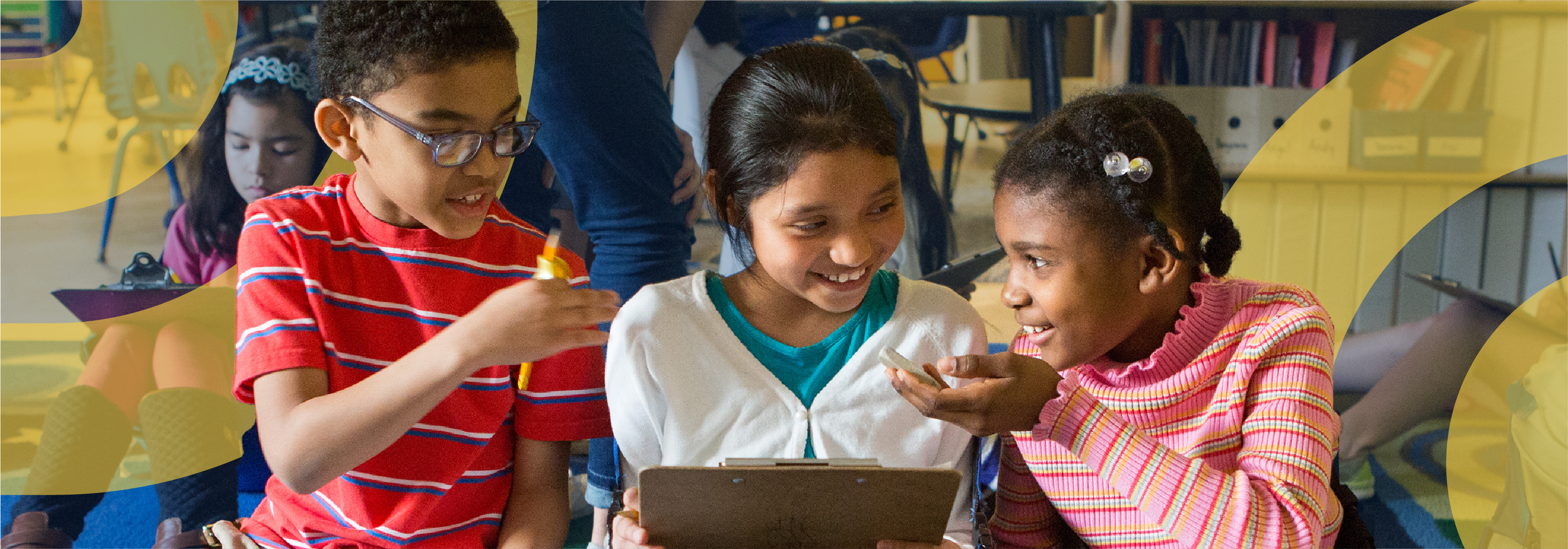
About
This 10-module video seminar series is for Preservice Educators. The purpose of this seminar series is to provide information about equity and data-based decision-making and how these concepts span across the OSE Educational Partnership into academics, behavior, and transition. By the end of this seminar series participants should be able to use data to promote equity and positive outcomes for students with disabilities.
Download Preservice Acronym Reference SheetShare this course: Download the flier.
Outcomes
- 1) Increase knowledge of data available to inform practices at the student, classroom, school, district, and state levels.
- 2) Interpret data using an equity-centered lens and mindset to ensure data are collected, analyzed, interpreted, and shared with diverse stakeholders without bias or exclusion.
- 3) Apply an equity-centered lens in data-based decision-making across academics, behavior, and transition.

